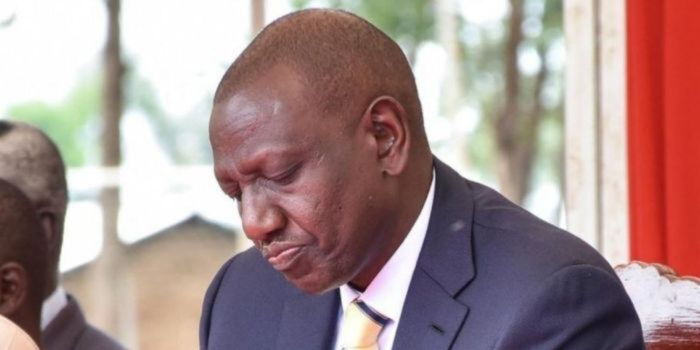Opposition leaders in Kenya have strongly responded to President William Ruto’s public apology by demanding real actions before they can consider it genuine.
They insist that justice must first be served for the victims of forced disappearances and extrajudicial killings.
Key opposition figures such as Kalonzo Musyoka of the Wiper Party and Martha Karua of the People Liberation Party emphasized that families affected by state brutality deserve reparations.
Additionally, they want the government to repeal oppressive laws that they say are limiting digital rights and freedoms.
In a formal joint statement signed by leaders from Jubilee, KANU, DAP-Kenya, and the Democratic Party (DP), the opposition acknowledged the president’s gesture of apologizing but stressed that it must go hand-in-hand with meaningful action.
“We, the undersigned political parties, note the President’s public apology and shift in tone with cautious optimism.
However, while an apology is a step forward, it must be backed by visible, credible efforts to deliver justice and protect democratic freedoms,” the statement read.
President Ruto’s apology was delivered during the National Prayer Breakfast in Nairobi, where he sought to restore trust with Kenyan youth—especially Gen Z—who led massive protests in June last year.
These demonstrations were sparked by the government’s decision to increase taxes and broader demands for accountable and transparent leadership.
During his speech, Ruto also extended apologies to neighboring countries Tanzania and Uganda after recent diplomatic tensions and public protests. Despite this, opposition leaders viewed his statements with scepticism and quickly issued their list of demands.
Among their top concerns is the continued misuse of the justice system to intimidate and silence opposition voices. They called for an immediate stop to what they termed as unlawful judicial actions against dissenters.
The opposition did not limit their criticism to domestic issues. They also challenged President Ruto, in his capacity as the Chair of the East African Community (EAC), to hold fellow regional leaders accountable.
This followed reports that Kenyan activist Boniface Mwangi faced harassment while in Tanzania, an incident that the Kenyan government remained silent about.
The opposition expressed deep disappointment over Ruto’s failure to speak out or stand up for Kenyan citizens mistreated in neighboring countries.
“It is unheard of for a head of state to remain silent when their citizens are harassed or humiliated by foreign governments.
President Ruto’s silence not only shows disregard for the dignity of Kenyans but also highlights a dangerous trend of eroding the human rights gains we have fought for over the years,” they said.
President Ruto’s apology has triggered widespread public discussion, with many questioning its sincerity and impact.
While some Kenyans welcomed his tone, others, particularly Gen Z activists, echoed the opposition’s view—stating that the apology must come with real reforms and not just comforting words.
They emphasized that young people are not looking for political speeches but for genuine change, accountability, and protection of their freedoms.
Join Gen Z New WhatsApp Channel To Stay Updated On time https://whatsapp.com/channel/0029VaWT5gSGufImU8R0DO30


